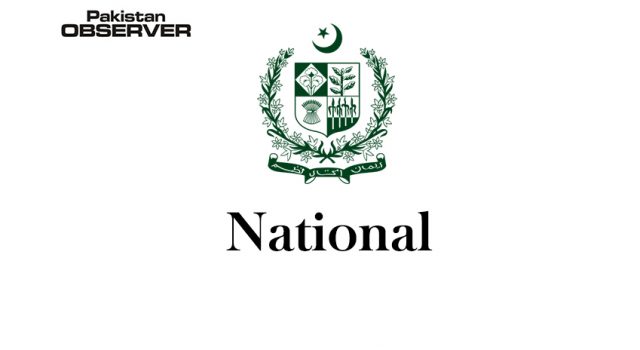Islamabad
Ahead of the International Day of UN Peacekeepers, the leader of first-ever Pakistani Female Engagement Team (FET) serving the UN mission in the Democratic Republic of Congo (DRC), known as Monusco, has said that through hard work they have established strong bonds with local people, especially women, as part of the world body’s efforts to promote peace in the central African country.
‘Resultantly, enhanced protection has led to a decrease in sexual violence cases, recruitment of child soldiers and threats by armed groups in the region,’ Major Saba Anwar, the team leader, said in an online interview with APP correspondent in New York from her base in DRC’s province of South Kivu. At the same time, she said that the outbreak of coronavirus — not as significant in DRC compared to rest of the world — has not hindered the their routine activities aimed at bringing about a change in people’s lives for the better.
‘My team (FET) and MET (Mixed Engagement Team), while adopting safety protocols, is conducting patrolling activities to impart COVID-19 awareness and prevention techniques among the locals, along with surveillance of suspected corona cases.’
Composed of 49 Pakistani female army officers, the team has been a part of Monusco for the past about 11 months. The officers are psychologists, stress counsellors, vocational training officers, gender advisors, doctors, nurses, operations, information and logistics officers. Overall, the total strength of UN peacekeeping troops in DRC is 15,171, including 1,978 Pakistanis who form the largest segment of the force. Fifty-seven countries have contributed military and police personnel for the peacekeeping effort.
In her interview, Maj. Saba Anwar said that female officers in DRC easily engage with women and understand their problems better, enabling the team to carry out its mandate efficiently. ‘However’, she said, ‘FET’s outreach activities are not confined only to women and girls but are also to men and boys of all ages and backgrounds. They see us in uniform, working side-by-side with our male counterparts, in specialized fields … crossing gender barriers (and) working for all segments of the community.’
DRC’s Women and girls, Maj Anwar said regard them as role models in providing peace training activities, including those related to security and protection. FET, she said, had worked for uplifting women, youth and children by engaging them in fields related to health, education, self-improvement and socio-economic tasks.
Replying to a question, Maj Saba Anwar said she agreed with UN Secretary-General Antonio Guterres’ position that more women in peacekeeping means more effective peacekeeping. Unlike women, she said that it was difficult for male soldiers to build a trust-based relationship with women. Regular patrolling activities by FET had facilitated better interaction, boosting the confidence of local women resulting in their increased protection and security.
‘The relationship established by FET has won the hearts and minds of locals and pave the way for further deployment of female peacekeepers,’ the team leader said. ‘Deployment of females is also necessary for prevention and resolution of conflicts by information gathering, peacekeeping and humanitarian responses in mission area.’
The enhancement of women’s role in the peacekeeping operation has become more and more important given their crucial role in conflict prevention, conflict management and post-conflict peace construction. Answering a question, Maj Anwar said they have gained invaluable experience while serving in a complex environment of DRC, a country with a diverse culture and challenges.
She said they keep in touch with their families, especially children, back home, whom they miss. But the welfare of the Congolese people was a motivating factor and ‘the sense of achievement keeps us going.’ Noting that the UN is celebrating the achievements of its women peacekeepers, Maj Saba Anwar said that as the first women to be selected for a peacekeeping mission to work for DRC people’s betterment, the recognition of their hard work and achievements was ‘really a proud moment for me and my team — being a woman and being a brave soldier of Pakistan Army.’—APP









